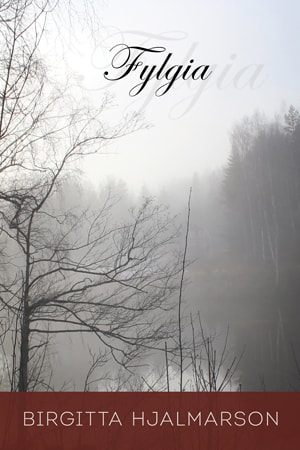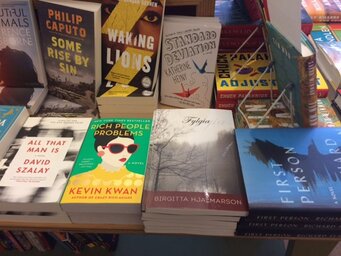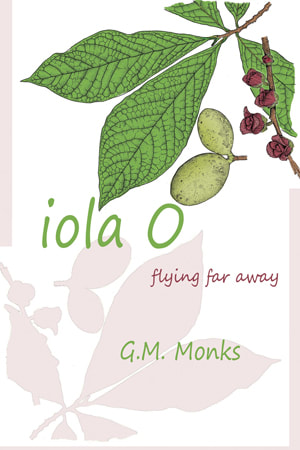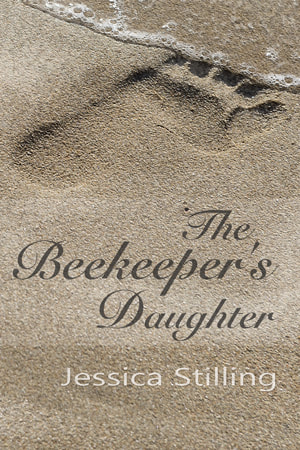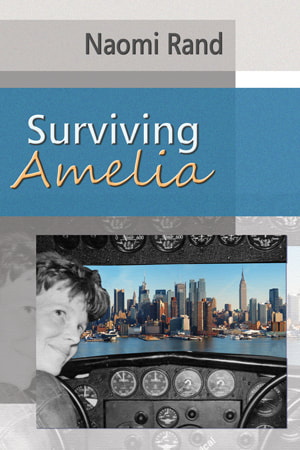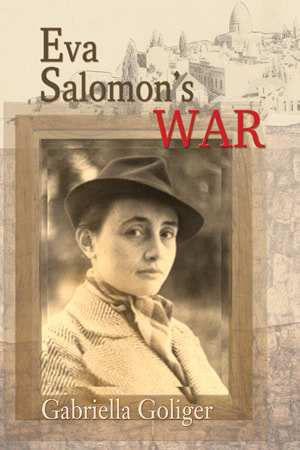Buy
DetailsBink Books
232 pp. ● 6×9 $14.95 (pb) ● $8.95 (eb) ISBN 978-1-945805-70-7 (pb) FICTION/ Family Life/General FICTION/ Literary Publication date: June 2018 |
|
Anna portrays a woman who refuses to accept the age-old beliefs society hands her. A country church gleams white in the sun, as stark and resilient as the Lutheran faith that sustains it. The First World War rages on the continent. Much of Sweden is changing but the village holds on to the old.
Sixty years later, Anna gives refuge to a young niece, whose marriage is falling apart. Fredrik is long since dead. She still blames him for the death of their child. Yet she misses his scent that would linger on her skin, like the moon that shone on the snow and colored it blue. Every day she visits the child’s grave, an old woman in a beret and tweed jacket. Time after time her thoughts return to the past and how her life was molded. |
Visit
|
-
Praise
-
In the Media
-
Excerpt
-
For Reading Groups
<
>
“Something intriguing and gripping flows through every page of this unique work of fiction. The atmosphere is rather hard and almost melancholic, but Anna is the bright, feisty character whose strength and determination overrule the morose rules and regulations of her community, in attitude if not in actual application. Beautifully crafted.” — Review by Viviane Crystal, The Historical Novels Review
“Rich description, focus on tiny details, and pithy summations of the characters make it hard for the reader to believe that this is not actually a memoir, so totally does the author inhabit the world of which she writes.” — Annie Whitehead, Review, Discovering Diamonds
“A subtle and poignant novel set in a small town in Sweden during World War I, and 60 years later, wherein a woman reflects on her life choices and their long-reaching consequences.” — Mrs. Dolloways Bookstore
"The writing is beautiful, informative and it kind of surrounds you. It is easy to imagine the scenes, actions and even smells. The characterizations are strong and varied . . . Birgitta Hjalmarsson is aware of culture and this shines through, which makes this book delightful." — GraphicGrub
“I was completely enchanted by the Swedish lore and atmosphere. This storyline creates a sense of mystery and intrigue and evokes mood and expectation fused with themes of birth, death, history, religion, and war. This is a classic tale and each character is brilliantly written so that they remind us of the eminent frailties of human nature.” — Review, Lori’s Book Loft
“This is a historical fiction memoir with a bite, as the story draws you in, and draws you on. The author cleverly draws the power of society to make people conform, the conflict between tradition and change, and the hidden lives lived out in full view.” — Review, It’s Good To Read
“When Anna decides to go up against the village of Hult for the sake of love, she must pay a high price, one that is slowly revealed in beautiful story-telling and prose. I loved the ever-presence of nature and being transported into the thrum of village and farm life, the way everyone’s lives are bound together through the generations. No spoilers here, except to say about the ending—powerful, searing, magnificent really.” — Pam Reitman
“Rich description, focus on tiny details, and pithy summations of the characters make it hard for the reader to believe that this is not actually a memoir, so totally does the author inhabit the world of which she writes.” — Annie Whitehead, Review, Discovering Diamonds
“A subtle and poignant novel set in a small town in Sweden during World War I, and 60 years later, wherein a woman reflects on her life choices and their long-reaching consequences.” — Mrs. Dolloways Bookstore
"The writing is beautiful, informative and it kind of surrounds you. It is easy to imagine the scenes, actions and even smells. The characterizations are strong and varied . . . Birgitta Hjalmarsson is aware of culture and this shines through, which makes this book delightful." — GraphicGrub
“I was completely enchanted by the Swedish lore and atmosphere. This storyline creates a sense of mystery and intrigue and evokes mood and expectation fused with themes of birth, death, history, religion, and war. This is a classic tale and each character is brilliantly written so that they remind us of the eminent frailties of human nature.” — Review, Lori’s Book Loft
“This is a historical fiction memoir with a bite, as the story draws you in, and draws you on. The author cleverly draws the power of society to make people conform, the conflict between tradition and change, and the hidden lives lived out in full view.” — Review, It’s Good To Read
“When Anna decides to go up against the village of Hult for the sake of love, she must pay a high price, one that is slowly revealed in beautiful story-telling and prose. I loved the ever-presence of nature and being transported into the thrum of village and farm life, the way everyone’s lives are bound together through the generations. No spoilers here, except to say about the ending—powerful, searing, magnificent really.” — Pam Reitman
- “2018 Book Blog Favorites” — Lori’s Book Loft
- “Author Spotlight Birgitta Hjalmarson with Fylgia” — Lori’s Book Loft
- “Recommendations from Mrs. Dalloway’s” — San Francisco Chronicle
- “September Recommended List” Women Writers, Women’s Books
- “We Are the Stories” by Birgitta Hjalmarson, Women Writers, Women’s Books
- “Creating a Great Novel out of Historical Events” — Susan Mary Malone, Malone Editorial
I STILL GO to the grave. My younger self runs ahead. I follow, cutting through the forest and staying away from the country road. An old woman in a beret and a tweed jacket.
Anemones cover the graveyard in the spring. Songbirds nest in the church ruin and the bird-cherry tree smells of bitter almonds. By midsummer the dog rose blooms. Dry branches crack in the meadow below, as the brown cows seek shade under the old apple trees. Buttercups and thistles still stand after the cows have grazed around them. Newborn calves, hidden by their mothers, lie motionless in the underbrush.
In the autumn, when the birches blaze orange and red, school children come through the gate with their notepads and crayons. Their voices ring in the air, high and eager. As I watch, they copy the writings on the granite slabs that mark the graves. They scream and run when they think they see ghosts. I recognize the fear in their eyes. And I remember.
In late October snow begins to fall. For a few months the graveyard is draped in white. A fir shakes, as a solitary moose pushes out of the forest, snow stippling his tufted winter coat. He stops and turns his head in the direction he came from, his nostrils quivering, as if something back there still holds his attention. His dark antlers catch the light, and he trots down into the meadow, whirling up a cloud of powdery snow.
The grave is marked by an iron cross, the letters raised and covered with gold. “Ingrid, 1918.” She was not long on this earth and yet she suffered more than any human should. I failed to protect her once. I cannot leave her now.
Fredrik, the child’s father, is buried next to her. They carried out his wishes, even though the soil was much too shallow and the rock underneath made the coffin tilt. This morning some animal, most likely a badger, had dug ruts around his stone. I have heard about badgers burrowing under graves and bringing up bones. As far as I am concerned, they may as well finish their task. I did not want him buried here.
Anemones cover the graveyard in the spring. Songbirds nest in the church ruin and the bird-cherry tree smells of bitter almonds. By midsummer the dog rose blooms. Dry branches crack in the meadow below, as the brown cows seek shade under the old apple trees. Buttercups and thistles still stand after the cows have grazed around them. Newborn calves, hidden by their mothers, lie motionless in the underbrush.
In the autumn, when the birches blaze orange and red, school children come through the gate with their notepads and crayons. Their voices ring in the air, high and eager. As I watch, they copy the writings on the granite slabs that mark the graves. They scream and run when they think they see ghosts. I recognize the fear in their eyes. And I remember.
In late October snow begins to fall. For a few months the graveyard is draped in white. A fir shakes, as a solitary moose pushes out of the forest, snow stippling his tufted winter coat. He stops and turns his head in the direction he came from, his nostrils quivering, as if something back there still holds his attention. His dark antlers catch the light, and he trots down into the meadow, whirling up a cloud of powdery snow.
The grave is marked by an iron cross, the letters raised and covered with gold. “Ingrid, 1918.” She was not long on this earth and yet she suffered more than any human should. I failed to protect her once. I cannot leave her now.
Fredrik, the child’s father, is buried next to her. They carried out his wishes, even though the soil was much too shallow and the rock underneath made the coffin tilt. This morning some animal, most likely a badger, had dug ruts around his stone. I have heard about badgers burrowing under graves and bringing up bones. As far as I am concerned, they may as well finish their task. I did not want him buried here.
Book Clubs & Reading Groups Discussion Guide
| Fylgia Reading Guide | |
| File Size: | 874 kb |
| File Type: | |
From the author
It must have been my great aunt Anna, the “real” Anna, but I’m reluctant to use that word. The Anna in Fylgia is more real to me now, even though she’s entirely fictional. When I first heard about Anna’s child, my great aunts and uncles were long since dead. I had moved to California, but at the time I was visiting my mother in a small town on the coast of Sweden. My mother mentioned the child almost as if in passing. She said an injustice had been done, that Anna had been made to suffer. When I questioned her on the details, she hesitated. What she told me had the sound of a twice-told tale, more familiar than believable. A wealthy farmer forbids his daughter to marry the man she loves. Surreptitious meetings lead to the birth of an illegitimate child, all swathed in shame imposed by an unforgiving church. But the Anna I remembered could not be curbed into obedience, not by her father, and not by God. The woman, whose soothing voice I followed from room to room, was never swayed by fear. And so it all began . . .
It must have been my great aunt Anna, the “real” Anna, but I’m reluctant to use that word. The Anna in Fylgia is more real to me now, even though she’s entirely fictional. When I first heard about Anna’s child, my great aunts and uncles were long since dead. I had moved to California, but at the time I was visiting my mother in a small town on the coast of Sweden. My mother mentioned the child almost as if in passing. She said an injustice had been done, that Anna had been made to suffer. When I questioned her on the details, she hesitated. What she told me had the sound of a twice-told tale, more familiar than believable. A wealthy farmer forbids his daughter to marry the man she loves. Surreptitious meetings lead to the birth of an illegitimate child, all swathed in shame imposed by an unforgiving church. But the Anna I remembered could not be curbed into obedience, not by her father, and not by God. The woman, whose soothing voice I followed from room to room, was never swayed by fear. And so it all began . . .
|
Discussion Questions
1. A fylgia, Gustafa explains, is a “shape” that will follow Anna around, a guardian spirit of sorts. It may appear as an animal or even as a person, only to disappear shortly before her death. When does Anna see it? 2. Dancing occurs often in Fylgia. What does it signify? 3. When talking to Ella, Anna says, “I was taught early that what was good for the family and the village was also good for me. Feelings would only confuse.” In what way did this lesson help or harm her? 4. Anna sees a dead wood grouse and suspects it died from fox poison. “The hen lay on her back, with a dead viper wrapped around her wings. Three wood rats had bitten into her breast. Even in death they had refused to let go.” In what sense might this be a metaphor for the novel as a whole? 5. Anna tries to explain to Fredrik why the children bully Ella. “It’s as if by punishing her, they think the rest of them can be saved.” Is this kind of fear at the heart of bullying even today? If not, how do you explain it? 6. The threat of disease, even madness, is one of the undercurrents of Fylgia. How would Ulrika have been diagnosed today? Could she have been cured? 7. Anna reads Nietzsche, who says that God is dead. She disobeys Wikander, who says the word of God is set in stone. Yet, when she listens to Palestrina, she’s deeply moved. “Anyone needing proof of God should only hear such music.” Is she a believer after all? What is her worldview at the end? 8. After Gustafa breaks Ulrika’s vase, Torpen takes it to be mended. It’s “expertly repaired, with not the faintest trace of breakage.” Anna recalls: “Even so, we never dared fill it with flowers, only a single peony on some special occasion, for it could never be as strong as it once had been.” How does this apply to other aspects of her life as well? 9. In Chapter Thirty-Eight, when Anna goes back to the cabin, Fredrik has already left. She will always wonder what might have happened had he still been there. What do you think? 10. Anna wants to show the villagers how to use condoms, even though they are illegal. Emma objects: “I don’t believe in forcing information on people who don’t want it.” Do you think Emma is right? |
Other Books You Might Like
Books & Imprints |
Information |
Contact |
Proudly powered by Weebly
